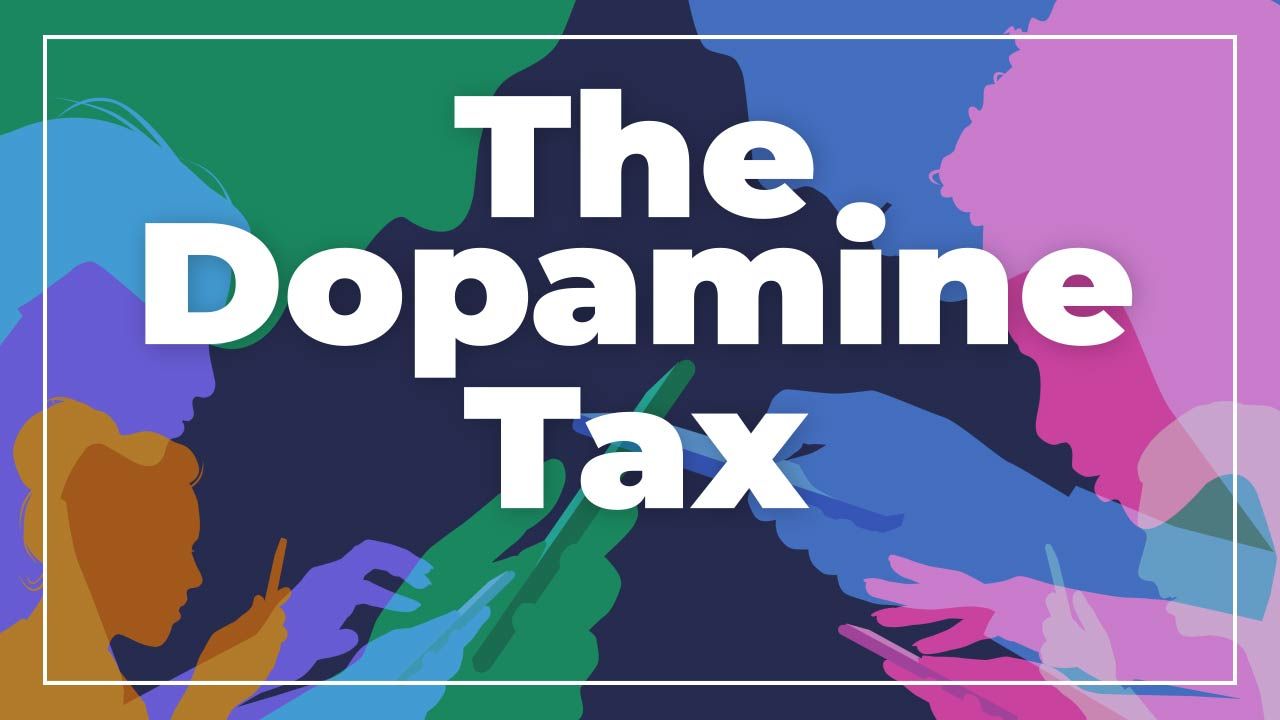
The Dopamine Tax
Jul 03, 2025The Dopamine Tax: How Smartphones Hijack Your Brain and Tank Your Productivity
Your smartphone is literally rewiring your brain for distraction, and the neuroscience is more alarming than you might think. Recent research reveals that constant digital stimulation creates a biological addiction cycle that undermines the very mental clarity and focus you need to excel in creative and demanding work.
Your brain on smartphones: The dopamine depletion cycle
A groundbreaking 2021 PET scan study tracking 22 adults over 32 days found that higher social media use correlated with measurably lower dopamine synthesis capacity in the brain's reward center. PubMed CentralPubMed This isn't just correlation—it's showing actual structural changes in how your brain produces the neurotransmitter essential for motivation and focus.
The mechanism mirrors slot machine addiction: intermittent reinforcement from notifications, likes, and messages triggers twice as much dopamine as predictable rewards. BrainFacts Your brain then compensates by downregulating dopamine receptors, creating a deficit state that manifests as the very symptoms that kill productivity—anxiety, irritability, difficulty concentrating, and constant craving for stimulation. McLean Hospital +2
The productivity tax: Quantifying the cognitive cost
The research on smartphone proximity reveals a stark reality: the mere presence of your phone reduces cognitive performance by 5-10%, even when it's turned off. ResearchGate +4 This "brain drain" effect particularly impacts working memory—the mental workspace you need for complex problem-solving and creative thinking.
The numbers are sobering for high-performers. Studies show it takes over 23 minutes to regain focus after a smartphone interruption, and the average knowledge worker checks communication tools every 6 minutes. NCBI Only 40% of professionals can maintain 15 minutes of uninterrupted focus, creating a productivity crisis that costs 100-person companies over $330,000 annually in lost output.
The mental health spiral: When connection becomes isolation
The psychological impacts create a vicious cycle. Longitudinal studies tracking nearly 4,000 college students over two years confirmed bidirectional relationships between smartphone addiction and depression—problematic use leads to worse mental health, which drives more compulsive usage. ScienceDirectBioMed Central Paradoxically, devices meant to connect us actually increase loneliness, with 56.7% of university students showing addiction-level usage patterns. ScienceDirect +3
Breaking free: Evidence-based solutions that work
The good news? Strategic phone separation shows measurable benefits. Controlled studies demonstrate that placing phones in separate rooms significantly improves cognitive performance compared to having them on your desk. ScienceDaily +2 Even simple environmental modifications—like keeping phones "out of reach" requiring physical movement—reduce usage by nearly 50%. CNN
The most effective digital detox strategies avoid total abstinence in favor of moderate reduction. JMIR +2 Research shows that gradual behavioral changes—turning off non-essential notifications, using grayscale settings, and implementing phone-free zones during deep work—prove more sustainable than dramatic digital detoxes. Sage Journals +2
For over-achievers and creatives, the evidence is clear: your smartphone habits directly impact your cognitive capacity, dopamine regulation, and mental health. ResearchGate +4 The solution isn't to become a digital hermit, but to design your environment and habits to protect your brain's finite resources for what matters most—your best work.
Don't miss a beat!
Get motivation and insights delivered to your inbox. No spam, no B.S.
We hate SPAM. We will never sell your information, for any reason.

